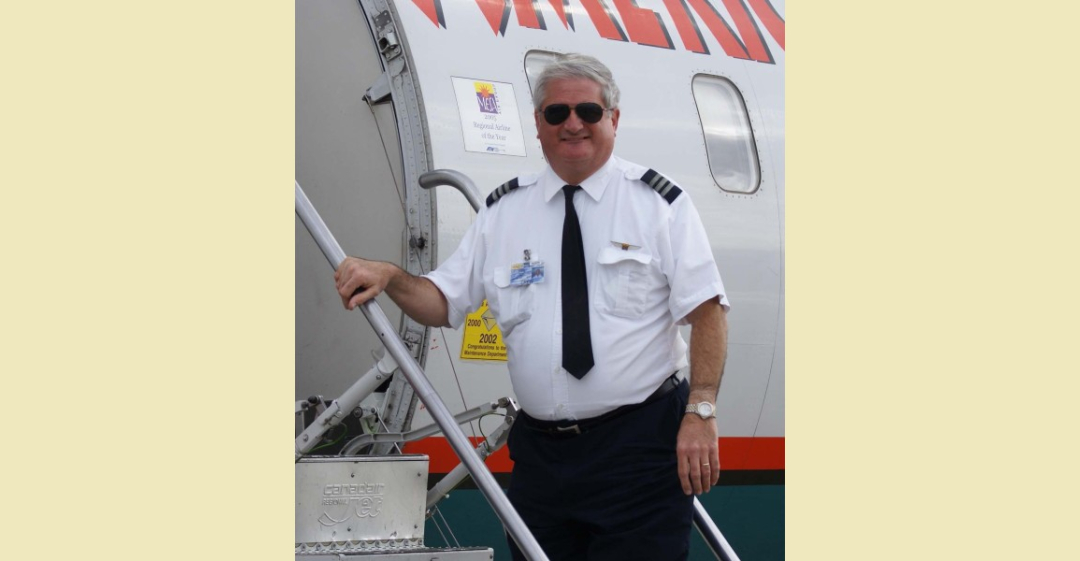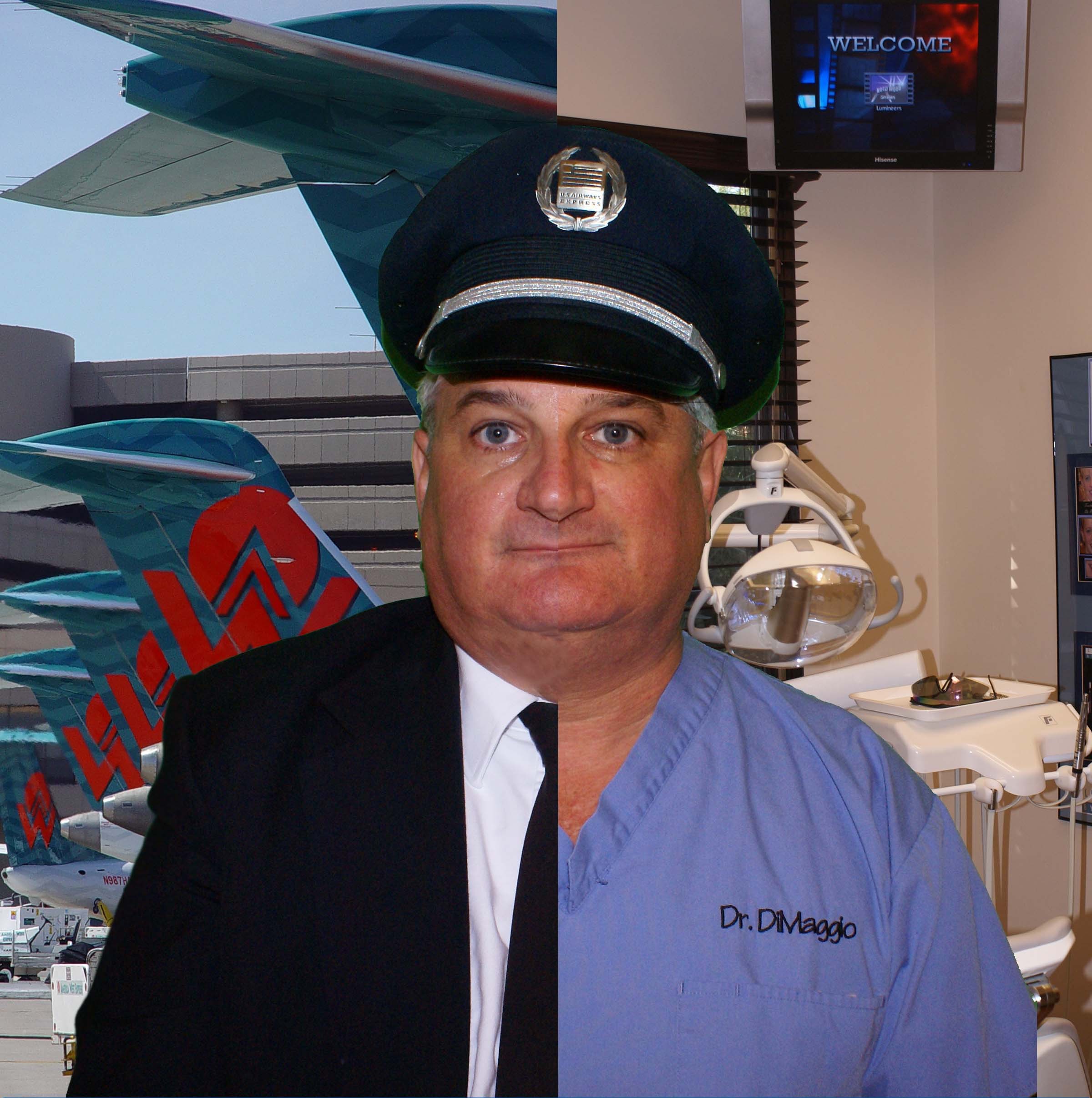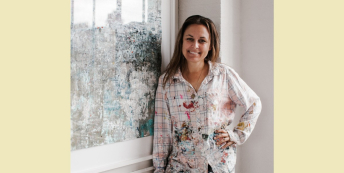“Dentistry wasn't what I dreamed of doing as a child.”

What work were you doing previously?
I became a dentist at age 25.
I went to dental school after completing my undergraduate degree at a four-year university. But my path there wasn’t straightforward.
I actually started at a junior college, because when I graduated from high school my academic skills were lacking. For instance, I was taking 10th-grade math in 12th grade.
I graduated in the bottom half of my high school class and realized too late that I should have done much better.
I knew I was at a distinct disadvantage in life. I had a high IQ, but didn’t apply myself. At one point, I even considered studying oceanography.
If it weren’t for a high school guidance counselor telling me, “There is more than one way to obtain your goals,” I probably would’ve ended up in Vietnam or changing tires at Firestone.
What career did you shift into?
I trained to become a pilot at the age of 35.
Why did you change?
Dentistry, while being a well-paying profession, was not what I dreamed of doing as a child.
After 10 years of spending my life looking into people's mouths in a windowless room measuring 12 by 14, I wanted a change.
When was the moment you decided to make the change?
In the summer of 1990, while staying at a Marriott hotel across from LaGuardia Airport in New York.
I was watching the airplanes take off and land. I had done the very same thing as a child, not from a Marriott hotel, but from the observation deck.
This time, as a 35-year-old married father of two, that long-dormant dream to become an airline pilot was rekindled.
The thought of landing one of these airliners at this very airport took hold. I didn’t even think it was a strange idea.
We all have many impulses, most of which fade quickly. This one seemed entirely pragmatic.
How did you choose your new career?
Flying was a boyhood dream.
It chose me when I was a teenager on a Cub Scout field trip to Kennedy Airport in New York.
We visited the British Airways hangar and I sat in the pilot's seat of a Boeing 707.
Are you happy with the change?
Absolutely.
I lived life and saw more of it in one month as an airline pilot than in one year as a dentist.
What do you miss and what don't you miss?
I did both dentistry and aviation at the same time.
I didn’t lack anything.
How did you go about making the shift?
I researched vision requirements for airline pilots and found the restriction of 20/20 uncorrected was now gone.
You could have vision correction, glasses, and still be hired. They hired pilots from both civilian and military backgrounds.
This opened the door to me that I thought was closed. I then researched flying schools and decided on Sawyer Aviation.
The school was located at the Main airport in Phoenix, Arizona, which was the hub for America West Airlines. TWA, American, and all the legacy major airlines flew into Sky Harbor Airport.
How did you develop (or transfer) the skills you needed for your new role?
I began pilot training at the age of 35.
I quickly progressed from small Cessnas to owning a multi-engine aircraft, which allowed me to build the hours I needed for advanced licenses.
Over ten years, I logged thousands of miles across the U.S., managing everything from flight planning and weather to maintenance.
That experience, along with earning my commercial, instrument, and multi-engine ratings, prepared me to pass the Airline Transport Pilot exam.
Breaking into the industry was tough as a midlife career changer, but persistence paid off.
I trained on regional jets, passed rigorous check-rides, and eventually fulfilled my goal of landing a jet at LaGuardia.
I hired a dentist to work in my practice three days per week while I was away flying. I practiced two days a week and flew 4 days per week.
I was working 6 days per week and I was the only practicing dentist in the country who was simultaneously an airline pilot.
Balancing this alongside my dentistry career taught me resilience, discipline, and how to transfer professional skills into an entirely new field.
What didn’t go well? What wrong turns did you take?
I had a couple of setbacks.
The 10 years it took to achieve the final goal were a little long but I kept at it.
How did you handle your finances to make your shift possible?
I was a Dentist who owned my practice.
I started it from scratch in 1986 when I moved to Mesa, Arizona, with my wife and 4-year-old son.
What was the most difficult thing about changing?
It was getting a job as an airline pilot at age 45 with no commercial aviation background.
It’s also getting out of your comfort zone. Bringing in an associate dentist into my practice was unsettling, but it worked out fine.
What help did you get?
I used the internet to search for opportunities.
I had a couple of friends in the airline business whom I asked for advice.
What have you learnt in the process?
Take your opportunities when they present themselves.
Stay focused for the long haul. Don’t quit when a setback occurs.
I lived life more fully in one month as an airline pilot than I did in one year as a dentist.
Never underestimate the power of an enjoyable career over the desire for the maximum amount of money.
Nothing has ever been gained without some degree of risk. If you can minimize the risk and take the chance, do it. That’s the ideal.
Don’t jump off a cliff into the water unless you’re reasonably sure that the water is going to be deep enough. You want to avoid the trauma of hitting bottom.
I was once berated by a fellow dentist when he said that I would be making minimum wage as an airline pilot. My reply to him was I’m not doing it for the money.
A blank stare on his face told me that he didn’t know what the hell I was talking about.
As I sit at this stage of life, looking back over six decades, I realize the real value came from pursuing what I loved, rather than simply chasing money.
Now, no amount of money could replace the richness of the experiences I gained by doing what I loved. The memories and feelings of accomplishment will be with me until I make that final Journey.
What do you wish you'd done differently?
Nothing.
What would you advise others to do in the same situation?
Sail your boat out beyond the safety of the harbor and into the infinite ocean that lies before you.
Dream Big. Never give up.
You don’t want to wake up one day in your later years and regret that you never even tried. If you have an impossible dream, have faith and go forward.
Hear more about Dr. Paul’s journey in his YouTube video: https://youtu.be/OBoHvJ6_RN0



